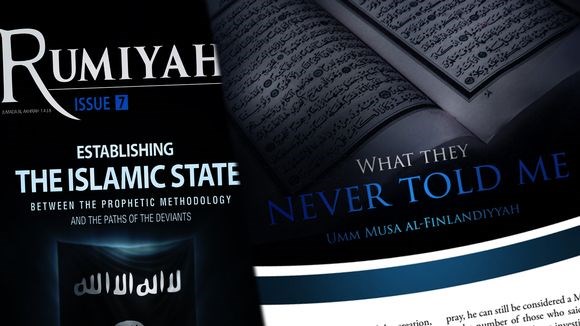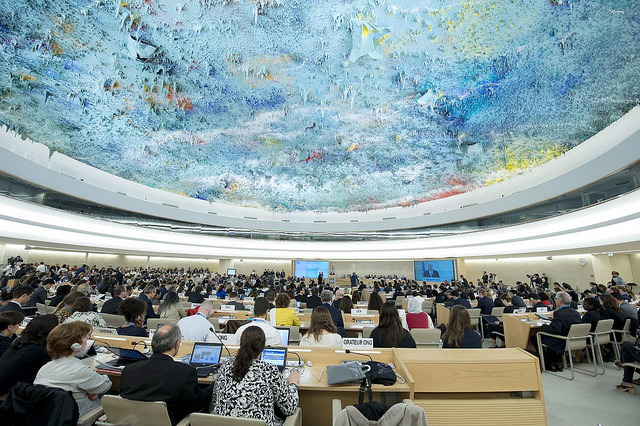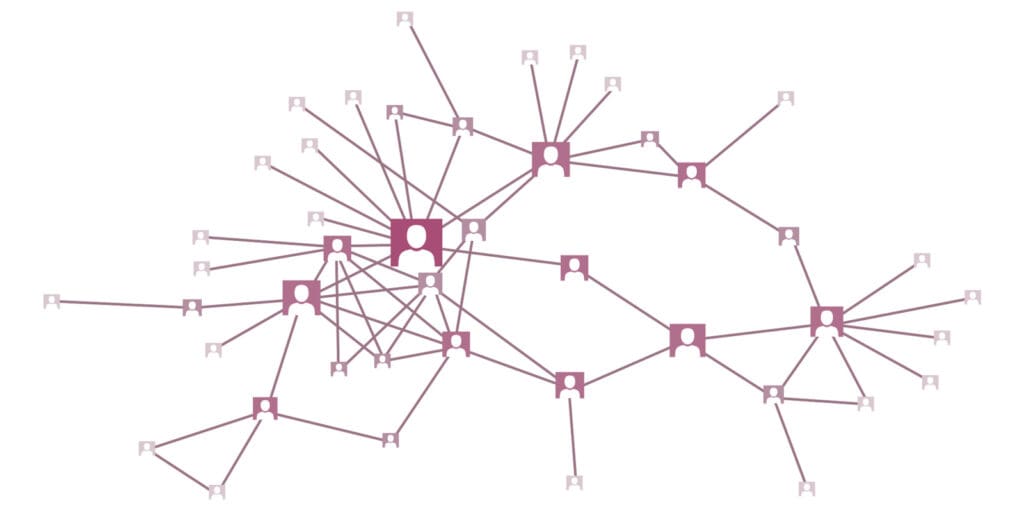Internet and Terrorism
Blog
The Islamic State’s Manipulation of Gender in their Online Information Operations
March 22, 2018By Kiriloi M. Ingram Since the self-proclaimed Caliphate’s inception, debate amongst scholars has ensued over whether the Islamic State’s (IS’s) muhajirat (female émigrés) would become female combatants. For example, Nelly Lahoud argues that IS is unlikely to devise a policy explicitly allowing women to engage in combat, as legitimating such a role would allow women to ...
Blog
Breaking the ISIS Brand Counter-Narratives – Part II: Ethical Considerations in Fighting ISIS Online
March 7, 2018This is the second in a two-part series; part one is HERE. By Anne Speckhard & Ardian Shajkovci Last week’s Blog post described ICVSE’s efforts directing counter narratives into the ISIS-dominated Internet space. This post discusses the ethics of attempting such interventions. As in all our work, our research ethics for Internet interventions with ISIS ...
Blog
Breaking the ISIS Brand Counter-Narratives – Part I: Intervention with Albanian Speaking Facebook Accounts
February 28, 2018This is part one of a two-part series; the second part is HERE. By Anne Speckhard, Ardian Shajkovci, Lorand Bodo & Haris Fazliu It is estimated that of the 38,000 foreign fighters who have joined Sunni militant groups, such as ISIS and al-Nusra, in Iraq and Syria, upwards of 875 have originated from the Balkans, ...
Blog
Online Jihadi Instructional Content: IS’s Rumiyah in 2017
February 21, 2018By Maura Conway and Michael Courtney Jihadi magazines have a long pedigree, are the subject of extensive media coverage and scholarly analysis,[1] and are still easily accessible online. In a recent book chapter, ‘Online Jihadi Instructional Content: The Role of Magazines,’ Conway, Parker, and Looney, focused on the instructional content, both text and images, published in ...
Blog
Identifying Radical Content Online
February 14, 2018By Ryan Scrivens and Garth Davies Violent extremists and those who subscribe to radical beliefs have left their digital footprints online since the inception of the World Wide Web. Notable examples include Anders Breivik, the Norwegian far-right terrorist convicted of killing 77 people in 2011, who was a registered member of a white supremacy web forum and had ties ...
Blog
Internet Intermediaries, Human Rights, and Extremist Content
January 31, 2018Content removal on social media platforms often takes place through semi-automated or automated processes. Algorithms are widely used for content filtering and content removal processes1, including on social media platforms, directly impacting freedom of expression and raising rule of law concerns (e.g. questions of legality, legitimacy and proportionality). While large social media platforms like Google or Facebook have ...
Blog
The Hidden Face of Hate Groups Online: A Former’s Perspective
January 3, 2018By Brad Galloway and Ryan Scrivens 2017 saw an increase in the on- and offline activities of organised hate groups in various parts of the Western world, including – but, indeed, not limited to – the US, Canada, and the UK. Some have attributed this spike to the current political climate in the West, from ...
Blog
How the Islamic State Uses ‘Virtual Lessons’ to Build Loyalty
December 13, 2017By André Gagné and Marc-André Argentino The Islamic State has lost most of its territory and key cities like Mosul and Raqqa, and more recently Deir al-Zour and al-Qaim, have fallen to the global coalition fighting the terrorist group. In the face of such challenges, it’s tried to maintain legitimacy through what some have called a virtual caliphate. Within ...
Blog
Can Taking Down Websites Really Stop Terrorists and Hate Groups?
November 29, 2017By Thomas Holt, Joshua D. Freilich and Steven Chermak In the wake of an explosion in London on September 15, President Trump called for cutting off extremists’ access to the Internet. Loser terrorists must be dealt with in a much tougher manner.The internet is their main recruitment tool which we must cut off & use better! — Donald J. ...
Blog
Industry Efforts to Censor Pro-Terrorism Online Content Pose Risks to Free Speech
October 11, 2017By Sophia Cope, Jillian C. York, and Jeremy Gillula In recent months, social media platforms—under pressure from a number of governments—have adopted new policies and practices to remove content that promotes terrorism. As the Guardian reported, these policies are typically carried out by low-paid contractors (or, in the case of YouTube, volunteers) and with little to ...








